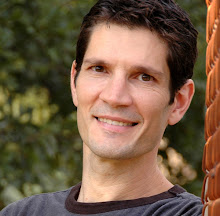After admitting their own ethical shortcomings, teens revealed that on a personal level "when it comes to doing what is right, I believe I am better than most people." This was stated by 93% of teens! Another 77% said they were "satisfied with my personal ethics and character." In short the majority of teenagers believe that they are good enough. What is shocking is comparing this admission of their personal ethical superiority to their own ethical choices.
STEALING - 30% of teens admit to stealing from a store in the past year (35% of boys, 26% of girls). Students involved in service groups and school leadership were less likely to steal but still more than 1 in 4 did so. 1 in 4 also admitted stealing from a parent and 1 in 5 stealing from a friend. There was no significant difference among those who attended private religious schools with 1 in 5 of these students admitting to being thieves as well.
LYING - This year 42% of all teenagers lied in order to save money. Apparently, saving a few dollars was worth more than their own integrity. There is a significant difference between guys and girls when it comes to lying. 49% of guys and 36% lied to save money. When it comes to gaining trust with parents, more than 80% of all public and private school students admit to lying to their parents.
CHEATING - This area of morality suffered the greatest increase from past studies. This can be largely contributed to the number of teens who have cell phones and use them for cheating. 64% of teens admit to cheating on a test in the past year. 38% did so more than once. There was no significant difference among private religious school students with 63% cheating. 35% used their cell phone for cheating. Among those who did 26% stored answers in their phone to use in the class room and another 25% texted answers to friends.
It's All About the Heart
It would be easy as a parent to loose site of the root of this kind of behavior. Sure none of us want our teens stealing, lying, or cheating but the problem is not the stealing, lying, or cheating. That might be what the get punished for is they get caught but there is a much deeper seated issue--the condition of their heart.
Playright Tennessee Williams said, "The human heart is curved like a road through mountains." Proverbs 21.2 says, "All a man's ways seem right to him, but the LORD weighs the heart." The heart is at the root of it all.
It's not so much their behavior that alarms me as it is the fact that teens believe they are "better than most people." There is an arrogance, a moral superiority at play in their heart. I know from becoming acutely attuned to my own brokenness and dysfunction that my own unwillingness to see my sin for what it is only lead me to becoming my own demigod. Why would I need God because, hey, I'm good enough. And since I'm better than most, I have the right to stand in judgment over those who are lesser. It produces a haughtiness that leads to rot.
This is the heart posturing of this generation of teens. Those raised from a modern worldview perspective would call this moral decay. Those from a postmodern perspective would likely call it a moral shift or moral clarification. Instead of a moral plum line we now have a curved road to paraphrase T. Williams. As this generation attempts to define what is cheating everything from peers to technology to the situation have a bearing on the definition. The curvier the answer becomes from what God intended the easier it is for me to become morally superior.
My heart hurts for this generation and where I know their choices will lead. Proverbs 11.2 tells us that, "moral pride leads to disgrace." But I choose not to be the judge that tries to bring about that disgrace. That is God's job. Rather I believe our role as pastors, parents, and friends is to model for them a "humility from wisdom." Wisdom that comes from our own experiences of being disciplined by God. Wisdom that allows me to see that apart from God's grace I too easily fall onto the curved road myself.







1 comment:
Brian,
There is no doubt that technology has had an effect on the world, but you are right it is a heart problem. In Sunday school I am teaching the children of the young people I taught when you were in high school, and have found that that the easy access to sin seems to make it more accptable in our minds. This is not to put the blame on technology but a call to be more vigalant in guardeing our hearts.
YIC
William Hill
Post a Comment